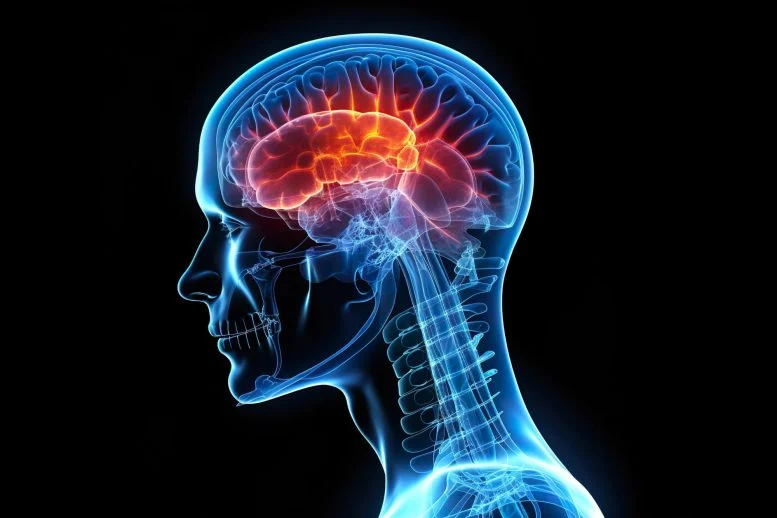Stockholm, Sweden – The brains of individuals with high blood glucose levels and inflammation may age faster, increasing their risk of dementia, according to a new study by researchers at the Karolinska Institutet. The findings underscore the significant impact of vascular and lifestyle factors on brain health.
The study, published in Alzheimer’s & Dementia: The Journal of the Alzheimer’s Association, utilized artificial intelligence (AI) to analyze brain images from 739 cognitively healthy individuals aged 70 years. Researchers aimed to explore the biological age of the brain and identify factors influencing its aging process.
Key Findings
The AI tool estimated the biological brain age of participants using MRI scans. On average, the brain age for both sexes was 71 years. Researchers calculated the “brain age gap” by subtracting chronological age from the estimated biological brain age to assess signs of accelerated or decelerated aging.
Key findings included:
- Accelerated Brain Aging: Diabetes, stroke, cerebral small vessel disease, and inflammation were associated with older-looking brains, suggesting a faster biological aging process.
- Younger Brain Appearance: Regular exercise and other healthy lifestyle choices were linked to younger-looking brains, emphasizing the protective effects of physical activity.
“A take-home from the study is that factors that adversely affect the blood vessels can also be related to older-looking brains,” said lead author Anna Marseglia from Karolinska Institutet’s Department of Neurobiology, Care Sciences, and Society. “This shows how important it is to keep your blood vessels healthy, to protect your brain, by making sure, for instance, that your blood glucose level is kept stable.”
Methodology
Participants underwent brain MRI scans to produce detailed images, which were analyzed using an AI-based algorithm to estimate brain age. Blood samples were also collected to measure glucose, lipids, and inflammation levels, while cognitive abilities were assessed through tests.
The researchers noted that inflammation and vascular issues, such as unstable blood sugar, significantly contribute to brain aging. This highlights the interconnectedness of cardiovascular health and cognitive function.
Future Research
The team plans to investigate potential sex differences in how men and women build resilience to brain aging and associated risks. “Understanding these differences could provide targeted strategies for reducing dementia risk,” Marseglia said.
Implications
This study adds to a growing body of evidence linking metabolic and vascular health to cognitive decline. It reinforces the importance of lifestyle choices—such as maintaining stable blood glucose levels and engaging in regular exercise—in protecting brain health.
For individuals, these findings suggest that monitoring and managing diabetes, reducing inflammation, and prioritizing cardiovascular health could play a critical role in slowing brain aging and reducing the risk of dementia.











